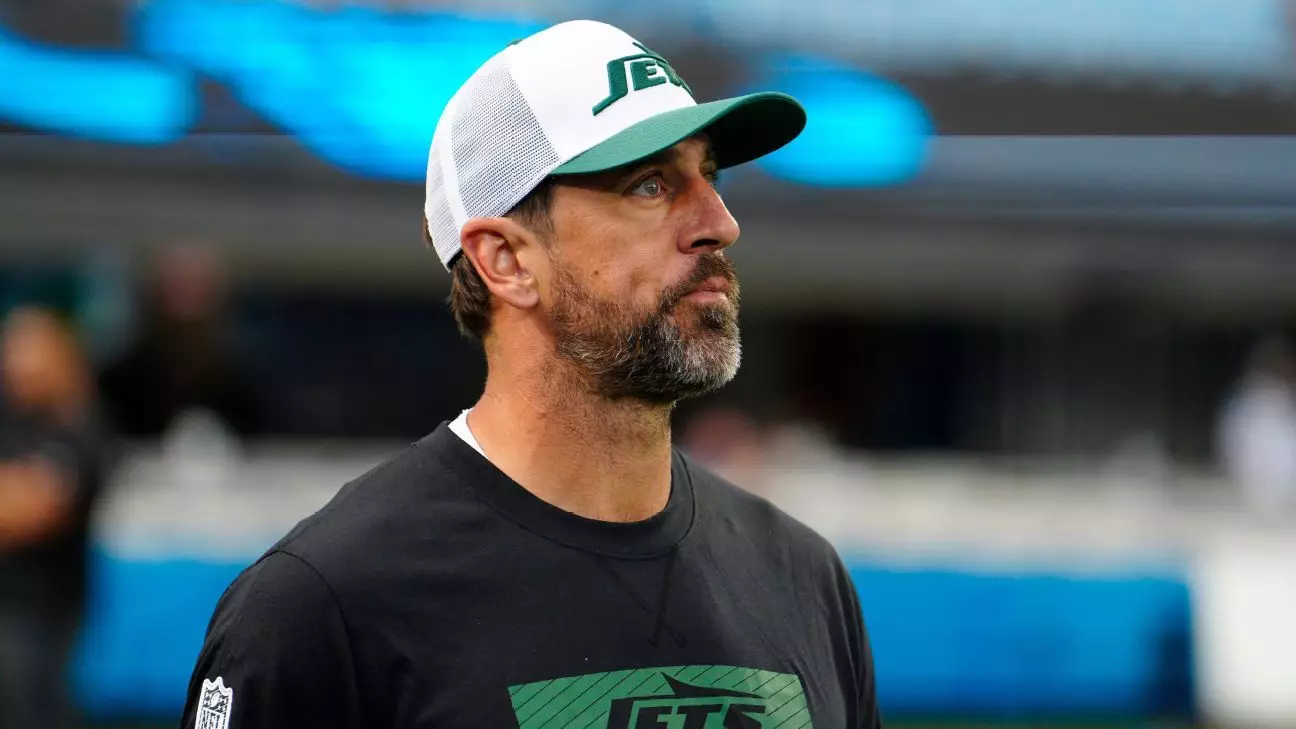As the NFL offseason transitions into training camps, every team faces the daunting task of preparing its roster for the rigors of the upcoming season. For Aaron Rodgers, the new quarterback for the New York Jets, this year’s training camp has proved uniquely grueling. Coach Robert Saleh had warned Rodgers in April to brace for an especially demanding experience, and as the camp draws to a close, Rodgers himself has labeled it perhaps the toughest of his extensive career.
With a wealth of experience, having participated in countless training camps, Rodgers recently shared his insights with reporters, noting, “I would say the camp is much harder this year and maybe the hardest in the last seven or eight of my career.” This sentiment underscores an intrinsic value in high-intensity training—a belief that pushing the physical and mental boundaries enhances resilience and readiness for the season.
Increased Intensity and Statistics to Back It Up
One of the most telling aspects of this year’s camp has been the sheer volume of practice reps. According to both Rodgers and Saleh, the Jets have engaged in 300 more practice reps at this stage compared to the previous year. This statistic is significant, especially for a franchise that has struggled to find success over the last decade. With the Jets facing the NFL’s longest playoff drought—spanning an agonizing 13 seasons—there is an intense pressure to transform this year’s training efforts into tangible results on the field.
This sense of urgency seems not only to shape the philosophy of Saleh but also reflects the overall mindset of the Jets organization. With Saleh’s record of 18-33 in his first three seasons, the stakes have never been higher. Players have indicated that the tone has shifted this summer towards a focused, businesslike approach, pushing them to extract maximum effort and commitment.
Though the aggressive training regimen has been well-received by some, it also raises questions about fatigue management. Rodgers acknowledged a diversity of opinions on the merits of rigorous training—a typical debate among teams preparing for the season. He highlighted that “some people believe that… although it puts more strain on you in training camp, it actually gets you more ready to play when the season starts.” This acknowledgment emphasizes the complex calculus franchises must navigate: balancing the need for preparedness against the risks of physical strain.
Rodgers’ own perspective appears to align with the camp’s demanding nature, as he has found comfort amid the grind. The veteran quarterback described this aspect of training camp as the “callus” phase, where players toughen not only physically but mentally as well. However, it’s crucial to observe that even while embracing this intensity, proper rest and recovery are equally decisive for long-term durability.
Strategic Decisions in the Face of Preseason
Ironically, amidst this rigorous setup, Rodgers took a “veteran’s rest day” recently—a decision rooted in strategy rather than a sign of fatigue. As the Jets prepared for joint practices against the New York Giants, Saleh opted to lighten the load for some key veterans, including the middle linebacker C.J. Mosley. With the preseason concluding against the Giants shortly, it is clear that Saleh is prioritizing player health and readiness over participation in the final exhibition game.
Rodgers has yet to take a hit in-game this preseason, a fact that doesn’t seem to trouble him. He has expressed confidence in his conditioning and functional performance throughout the camp. Despite the passage of time since his Achilles surgery, he remarked, “I feel good about where I am with my body and what I’ve put together,” emphasizing his focus on making dynamic plays even within the confines of practice.
As the Jets look ahead to their opener against the San Francisco 49ers, there is a palpable sense of optimism and urgency. While Rodgers may not participate in every preseason outing, he has made excellent use of the training camp to familiarize himself with the offensive system orchestrated by Nathaniel Hackett. Given the player’s age and previous injury, careful navigation through training, practice, and games will be vital.
Hackett acknowledges, “He’s a little bit older, so he has lost a little bit of the speed he used to have,” but he also praises Rodgers’s determination and conditioning. It seems clear that for the Jets to finally break free from their playoff drought, they must harness the momentum built during this arduous training camp, blending seasoned talent with newly forged team chemistry to create a compelling and successful season narrative.


Leave a Reply